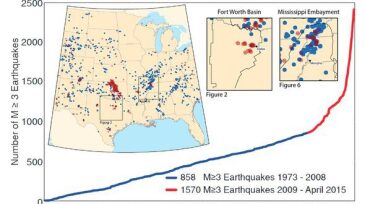Environment
The agency’s administrator said the program “does nothing to improve air quality.”
The project is expected to recover up to 300 MMscf/D of flared gas. Plans call for the recovered gas to be converted into treated dry gas, liquefied petroleum gas, and condensate for domestic use and export.
This research aims to harness the advanced capabilities of artificial intelligence, specifically deep learning and large language models, to develop a comprehensive system for detecting and explaining oil spills.
-
Environmental Protection Agency Administrator Scott Pruitt said in his first testimony before Congress on 7 December that he plans to replace the Obama-era Clean Power Plan, instead of just killing it outright.
-
Between 2005 and 2015, energy-related carbon dioxide emissions decreased in 43 states (including the District of Columbia) and increased in 8 states. On a per capita basis, energy-related carbon dioxide emissions decreased in 49 states (including the District of Columbia) and increased in 2 states.
-
The American Petroleum Institute on 5 December launched a voluntary program to cut emissions of the greenhouse gas methane from oil and gas operations, a move environmentalists said was not strong enough to adequately protect the climate.
-
Between 2009 and 2016, SPE facilitated a series of global sessions to develop ideas for the future advancement of health, safety, and the environment in the industry. The result is the technical report “Getting to Zero and Beyond: The Path Forward.”
-
BP, Eni, ExxonMobil, Repsol, Shell, Statoil, Total, and Wintershall committed to further reduce methane emissions from the natural gas assets they operate around the world.
-
One of the big stumbling blocks when it comes to properly handling North Dakota’s substantial tonnage of radioactive wastes has been the time it takes for an accurate test of how much Radium 226 and 228 are present in a given load of the material.
-
ExxonMobil expects a new $1 billion fuel upgrading unit at its Antwerp refinery to be fully operational in the first half of next year, the company said on 28 November.
-
Thailand’s largest refiner, Thai Oil, will stop producing fuel oil from 2022 once it completes a $4-billion upgrade that will boost output of clean fuels, officials said.
-
For 300 million years faults showed no activity, and then wastewater injections from oil and gas wells came along.
-
TransCanada’s Keystone pipeline leaked an estimated 210,000 gallons of oil onto agricultural land in northeastern South Dakota, but state officials say they don’t believe the leak polluted any surface water bodies or drinking water systems.










